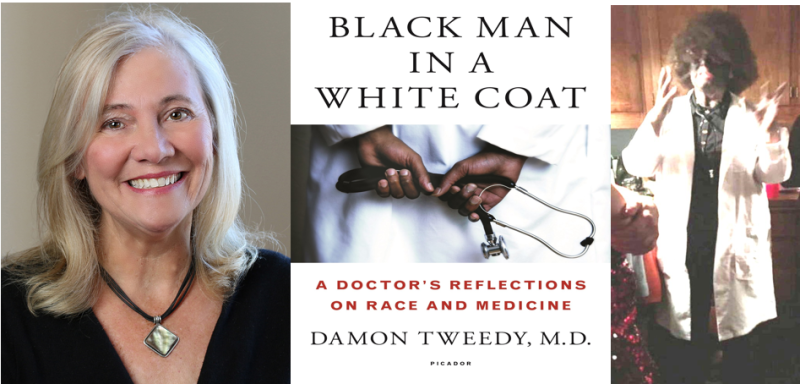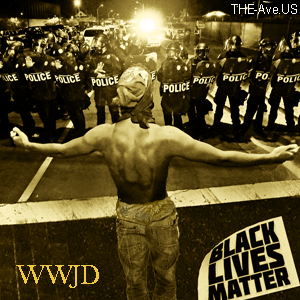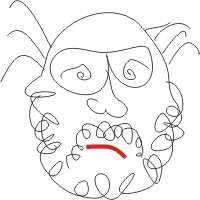UO Professor Punished for Appearing in Blackface

Books by Professor Shurtz: Sustainability and Business Law, (co-authored with Judd Sneirson) (forthcoming in 2015). Estate Planning With Real Estate, ABA, (forthcoming in 2015). Live Your Life By the Loopholes, (forthcoming in 2015). Education Planning: Taxes, Trusts & Techniques, ABA (2009). Corporate Tax, Volumes 1 and 2, Shepard’s McGraw Hill, Inc., co-authored with Michael Durst, Gwendolyn Griffith, and James O’Hara (1992).
Last October, Professor Nancy Shurtz hosted a Halloween party at her home . She invited faculty as well as all of the students from her Tax Policy and Tax Planning classes. Students were welcome to bring family members, dates, or plus-ones. People could choose to wear costumes if they wished, and that she would be “going as a popular book title.”
Shurtz’ costume was a doctor get up and she wore black make up. She explained she was “a book.” A copy of the book, a bestseller, was on the coffee table. When asked about the costume, Professor Shurtz explained that she was portraying a figure she admired and hoped to start a conversation about discrimination in higher education. Shurtz’ daughter, a medical student, had complained that her school lacked black students.
The next day Professor Shurtz received emails warning her of repercussions. She sent out emails of apology including teo she sent tp students “of color” saying she meant no harm. Nonetheless, according to Oregin’s Register-Guard, the costume offended students and faculty , sparking outrage, angry discussions and tears. Two days later a letter was circulated by other law school faculty urging Shurtz to resign and noting that blackface is patently offensive, overtly racist, inappropriate, and reflective of a profound lack of judgment.
And the report commissioned by the university doesn’t challenge her stated intent, which was to draw attention to the book and its anti-racist message. But the report RECOMMENDS PUNISHMENT because the history of blackface is as a tool to demean and insult black people.
From Inside Higher Ed Professor, Nancy Shurtz immediately apologized and said that she was trying to dress as Damon Tweedy, a black man starting his medical career, Black Man in a White Coat.

The report noted that the university is committed to academic freedom and First Amendment principles. But the report said that these rights are not absolute for faculty members, and that it is appropriate to consider the “disruptive” impacts some speech could have in some circumstances. Specifically, it noted that speech that takes the form of harassment is not protected.
The report includes some context about the party that may be relevant to those whose initial reaction was that what a professor does in her own home and her own party is not anyone else’s business. The report notes that she invited all of the students in two of her classes to attend — extending invitations in class and via class email lists. The report — based on interviews with those students — also notes that some (but not all) students felt that it was wise for their relationships with the professor to attend the party.
“The fact that the event was off-campus at Shurtz’s home distinguishes it from the standard classroom environment in which the students can be considered a ‘captive audience,’ unable to just ‘avert their eyes’ from something that offends them. However, several students said they felt like they could not leave when they wanted to, despite being offended and uncomfortable, for the same reason they felt obligated to attend, and some said this was because Shurtz had papers of theirs still waiting to be graded.”
The report — by a Portland law firm — also noted that the university is committed to academic freedom and First Amendment principles. But the report said that these rights are not absolute for faculty members, and that it is appropriate to consider the “disruptive” impacts some speech could have in some circumstances. Specifically, it noted that speech that takes the form of harassment is not protected.

Would UO be equally critical if the speaker were a faculty member who supports Frankish or an Israeli speaker who supports invasion of Jordan?
“Actual impacts that we heard from those interviewed included shock, anger, surprise, anxiety, disappointment, and discomfort with remaining at the event. Given the number of students who were present for the event, the publicity surrounding the incident, the severity of the costume choice and the level of offense, and the significant and ongoing impacts upon both the

Would this happen here?
Would the UW be equally critical if the speaker were a faculty member who supports Farrakhan or a faculty member who supports an Israeli invasion of Jordan? I do remember a few years ago when the Burke put on a show of Palestinian art that was overtly antisemitic. This was in our Campus’ premier museum space. Thee decision that we protect free speech, even when it is offensive, made me proud. I have questions about what we would do.
First, would the investigation be done by the administration or the faculty? Apparently there has been no effort by the UO faculty to speak up. The actual investigation was done by a hired law firm and makes no mention of rights under the faculty code. We have seen this all too often here under President Emmert, going so far as to have the administration override an elite faculty panel.
Second, does this mean that students have free speech rights that faculty lack? UW President Cauce has defended the rights of the the UW Young Republicans to invite Milo Yiannopoulos, a provocateur and editor of the Breitbart News Network who has been banned from Twitter for racism and misogyny. Like most faculty, I defended this decision. It seems to me that free speech on campus should be just that, free and untrammeled. The only limits that make sense to me are when free speech involves compulsion.
attendees as well as the student body, it is clear that Shurtz’s costume was substantially disruptive to the educational environment,” the report says.
The report added: “Outcomes and impacts upon the broader student body have been described at length above, but a summary of such impacts includes outright hostility and division between the students, the environment being described by some as ‘toxic,’ class time being spent on discussing the event and the students’ reactions, the open forum, minority students feeling that they have become burdened with educating other students about racial issues and racial sensitivity, students using other offensive racially based terminology during class times in the context of discussing this event and broader racial issues, feelings of anxiety and mistrust towards other professors beyond just Shurtz, students now avoiding spending time on campus as a result, and some students who are attempting to transfer to a different law school.”
These impacts were key to the finding that “the effects of Shurtz’s costume constitute disruption to the university significant enough to outweigh Shurtz’s interests in academic freedom and freedom of speech in the type of speech at issue. In addition, the resulting hostile learning environment and impact upon the academic process renders this particular speech to be speech that the university has a strong interest in preventing.”
Two caveats offered by the report concerned factors over which Shurtz had no direct control: Concern over a lack of diversity in the law school, and frustrations over the reactions of some students to the incident, which were perceived as insensitive.
Shurtz has not commented on the report and said in her apology that she would not comment again until the university investigation is complete. She has been on paid leave.
Scott Coltrane, Provost at Oregon, issued a statement in which he said that he normally would not have released such a report, but did so because of the intense interest in the case and because Shurtz has already identified herself as the professor involved.
As to the next steps in this case, the Provost said: “In all cases where the university is advised that an employee violated university policy, the matter is reviewed under the appropriate disciplinary process. I have read the report, and accept its conclusion. Any resulting disciplinary action remains confidential under university policy.”
So what is an “appropriate disciplinary process?” Shouldn’t that be the purview of the faculty? There was no evidence here of an intent to intimidate anyone. Students and employees should obviously always be free from intimidation but that can not mean freedom from ideas.i
It seems to me that free speech on campus should be just that, free and untrammeled. The only limits that make sense to me are when free speech involves compulsion. Students and employees should obviously always be free from intimidation but that can not mean freedom from ideas.
Chinazor Onianwah This won’t get by dander up. I have idiots, nincompoops, vagabonds, nitwits, despots, thieves, all ruining my home country, Nigeria. They all wear black faces.